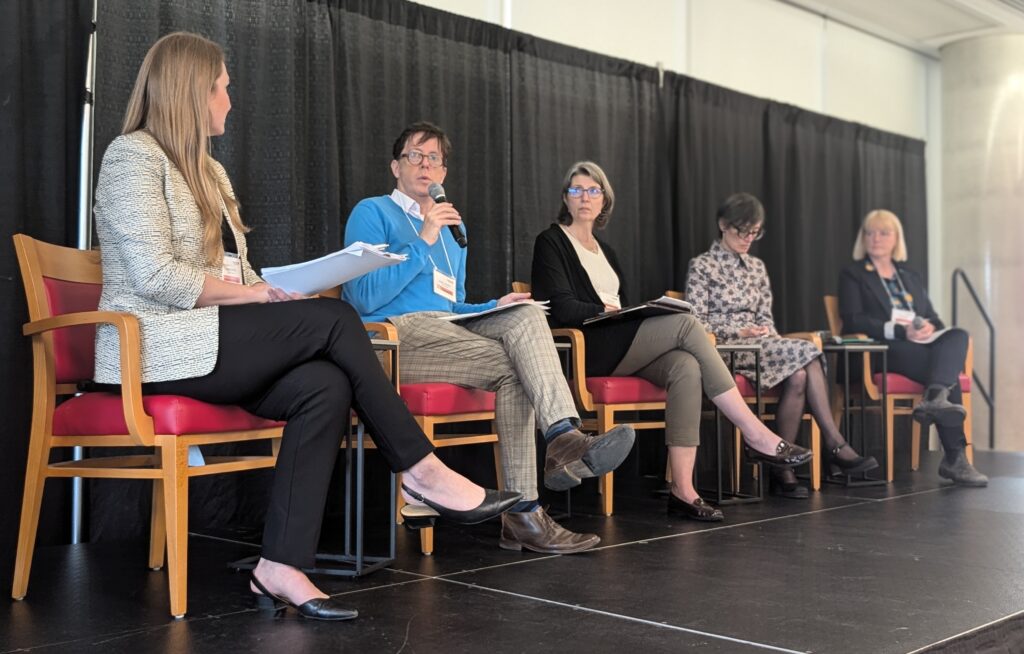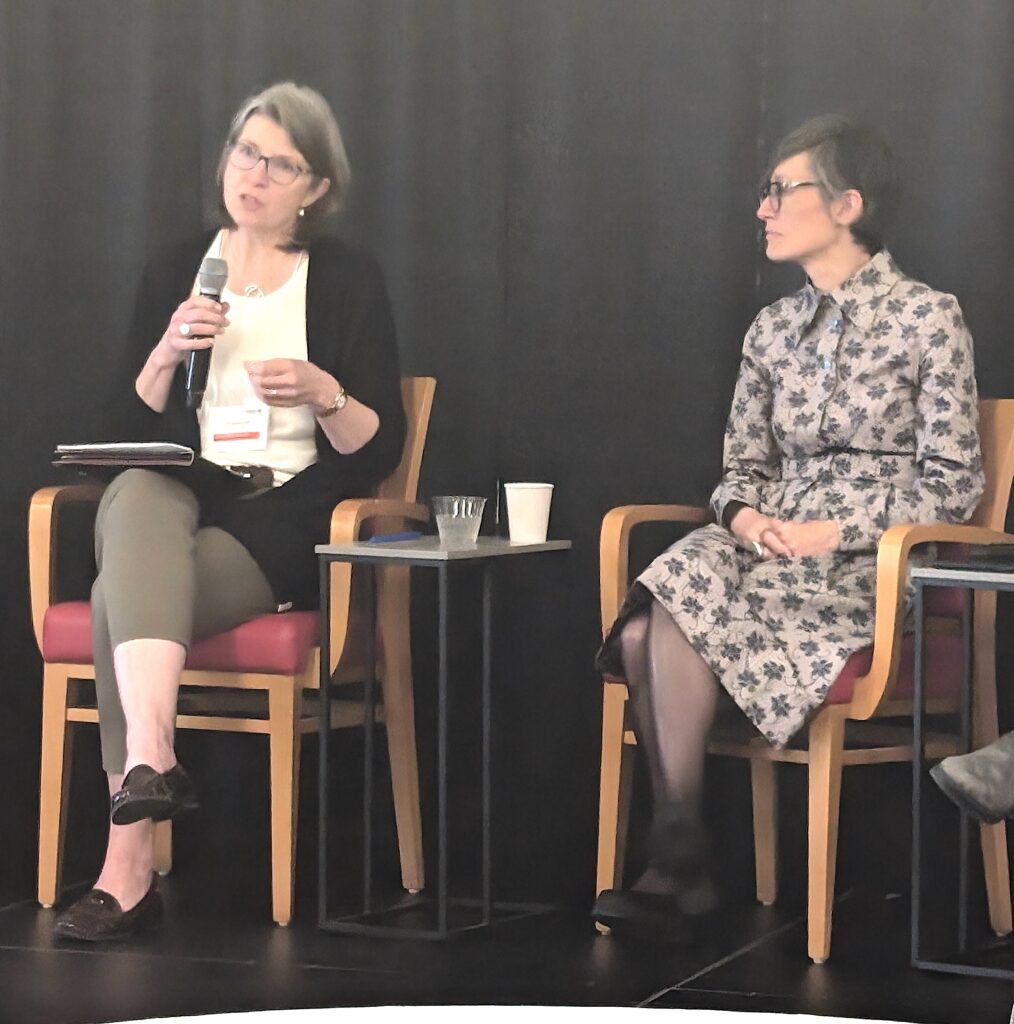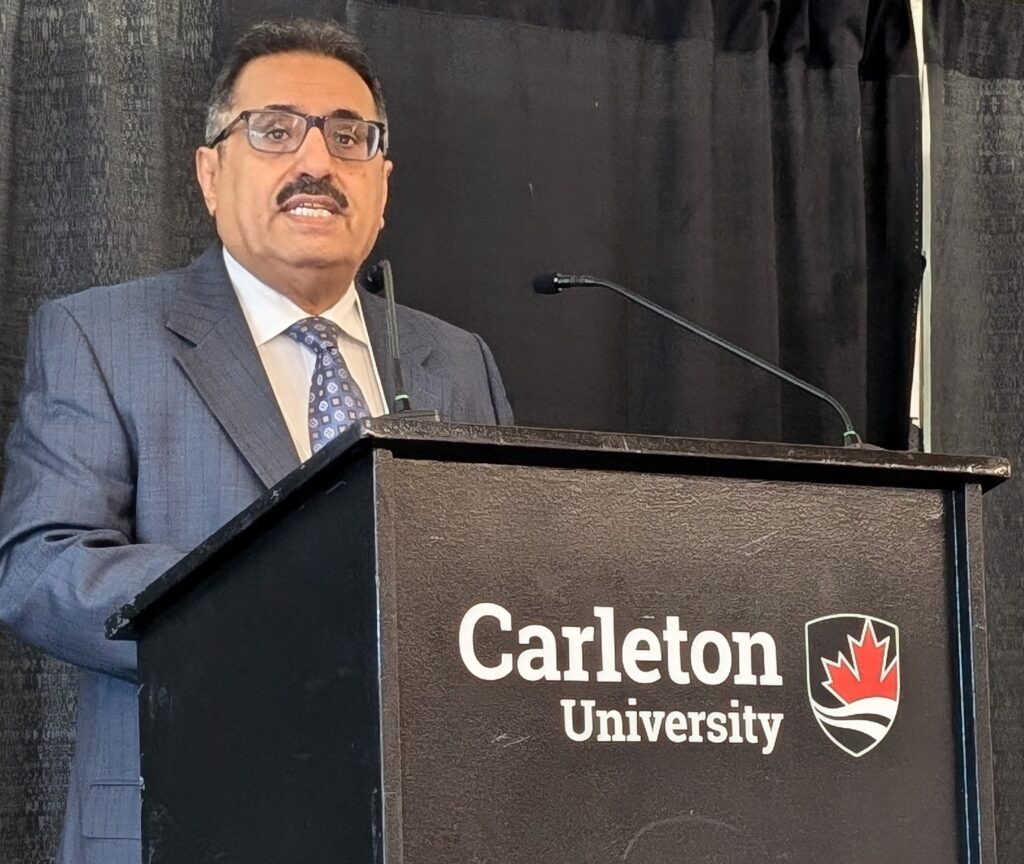
What would you do if you were experiencing threats to your life as a result of your scholarship? Where would you go if your country of residence, or the one you call home, becomes dangerous for you and your loved ones? How would you even get there?
These are the real situations scholars-at-risk around the world find themselves, often with the clock ticking quickly on securing some place of sanctuary. A briefing session held May 23 at the Safe Havens and Knowledge Networks in Canada conference explored how the Scholars at Risk (SAR) Initiative at host institution Carleton University is committed to supporting and protecting scholars experiencing these at-risk realities.
‘Each scholar comes with such unique circumstances. Sometimes with family, without, younger children, or never having experienced an Ottawa winter, so we need to get snow boots for kids. We need to talk about registering for school, opening a bank account, navigating transit.’
— Dr. Christine Duff, Carleton professor and SAR Carleton committee co-chair
The stage was shared by five leaders of SAR Carleton: conference co-chair Dr. Megan Graham, adjunct research professor in the Department of Sociology and Anthropology; history professor and SAR Carleton Committee co-chair, Dr. Andrew Johnston; French professor and SAR Carleton Committee co-chair Dr. Christine Duff; SAR Carleton Committee member and history professor Dr. Laura Madokoro; and Carleton manager of faculty affairs and SAR Carleton Committee co-chair Norah Vollmer, also co-chair of the Safe Havens conference.
SAR Carleton is able to provide one- to two-year appointments to host at-risk scholars in departments across the university. These arrangements are made possible through the initiative’s partnership with the New York-based Scholars at Risk Network and the Institute of International Education’s Scholar Rescue Fund, also headquartered in New York.
“The conventional pathway for vetting prospective scholars coming to Carleton is that we use anonymized lists from Scholars at Risk (New York) and the Scholar Rescue Fund. We select scholars who’ve identified a preference for Canada and whose research fits well with some of the academic strengths that Carleton has,” explained Johnston.

While at-risk scholars work all around Carleton’s campus, efforts to protect their private identities as being “at-risk” is why many people at the university are unaware of the vulnerable status of those individuals or the fact that SAR Carleton even exists.
“In some cases, we can’t advertise the scholars who are here . . . for security reasons, and it’s not uncommon to run into a great many colleagues across the university who have not really heard of what Scholars at Risk does or have not (knowingly) had face-to-face contact with a scholar-at-risk — even though they probably have,” said Johnston.
After an at-risk scholar’s application is reviewed, an interview is conducted and the new position is confirmed, a lot more effort goes into moving a scholar to take up their placement at Carleton.
In 2019, SAR Carleton developed a program called Scholar Care to assist the at-risk individuals who have found a safe harbour at the university.
“There’s a whole person involved,” said Duff, explaining how a scholar’s intellectual life can’t be separated from their personal and family circumstances.
Duff described Scholar Care as a “constellation of services” designed to support a scholar’s transition needs, from getting to know the campus, acclimatizing to Canada’s weather, securing housing and countless other things in between.

“Each scholar comes with such unique circumstances. Sometimes with family, without, younger children, or never having experienced an Ottawa winter, so we need to get snow boots for kids. We need to talk about registering for school, opening a bank account, navigating transit,” said Duff.
Another possible transition hurdle can be a scholar’s academic credentials and the challenges of job recruitment in and outside of academia. SAR Carleton’s Academic Advancement and Career Alignment Course works to help at-risk scholars, artists and activists receive Canadian academic credentials and employment training for jobs within academia or unrelated to the field of education.
For Graham, who led the development of the course, the purpose is simple: “Try to facilitate a faster onboarding process, de-mystify it (and) give people the essential tools to get going.”
Held online to ensure access from across Canada, the Carleton-based course leverages feedback from past participants and expertise from those in relevant industries to best equip individuals registered in the class. The course welcomed more than 60 participants in its spring 2025 cohort, and there are plans to reach more people next time.
Having wide reach and access is a key feature of SAR Carleton’s work, including the Global Scholars Program, coordinated by Madokoro, which provides a few years of renewable support to scholars world-wide, including vulnerable individuals who may remain in their own country.
“The Global Scholars Program is designed to support scholars at-risk who can’t actually travel across international borders (and) are not necessarily here in Canada. The idea behind the program is to offer scholars the opportunity to access library resources, to have a Carleton email address to support publishing opportunities — because you can’t submit from a gmail address . . . Each of the global scholars is also hosted by a department at Carleton,” Madokoro explained.
In short, SAR Carleton aims to support scholars-at-risk to live and work safely no matter where they might be.


